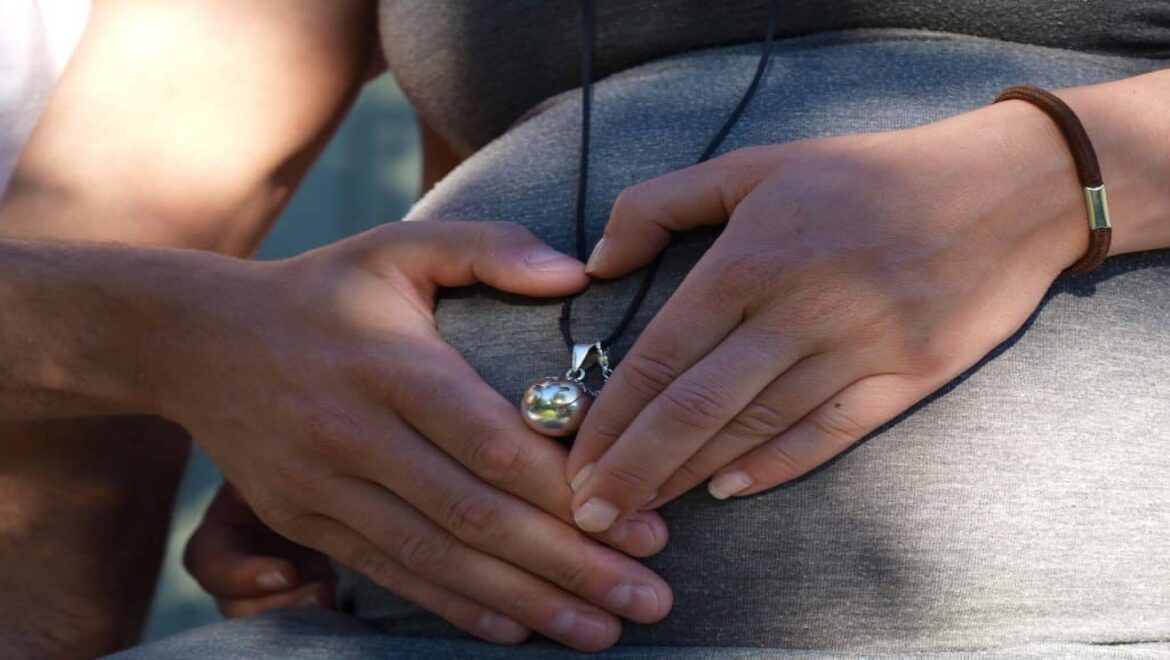
During pregnancy, most women experience a range of symptoms.
One symptom which is extremely common is itchy skin.
Most itching is normal and nothing to worry about but there is a condition call Cholestasis of pregnancy that will need treatment. Find out how to tell which type of itching you have below.
Mild itching on your stomach and other areas of your skin are totally normal during pregnancy.
The itching is due to the blood supply to your skin increasing. The extra blood flow enables your skin to stretch to accommodate your growing baby bump.
It makes sense therefore that the itching is likely to be more pronounced as your bump gets bigger.
Itchy skin around the stomach area is particularly common in the third trimester.
This minor itching is nothing to be concerned about, and while you should certainly have a chat with your midwife or doctor if you’re worried, you are likely to be told that what you are experiencing is totally normal.
One thing you do need to be aware of, however, is that itching which just won’t go away and drives you borderline mad, is certainly not normal, and this severe itching can be a sign of a condition called obstetric cholestasis.
What is Obstetric Cholestasis?
Cholestasis can occur at any time of anyone’s life but pregnancy can bring on a version of the condition, the aforementioned obstetric cholestasis (or sometimes called intrahepatic cholestasis).
Thankfully this condition is rare and only affects less than one woman out of every one hundred.
If you do experience this severe itching you should seek medical attention urgently.
Cholestasis is a liver problem which can cause complications for your baby, potentially serious ones.
In the normal run of things, bile runs from your liver and travels to your gallbladder, which works to help the digestive process.
When cholestasis is present, the bile salts are not excreted well and so there is less bile traveling to the small intestine which causes a build up in other parts of the body.
Obstetric Cholestasis Symptoms
If you notice any of the symptoms below, you should seek help from your doctor or midwife as a matter of urgency. It’s worth noting that obstetric cholestasis tends to become more prevalent as you hit the 28th week of gestation and beyond.
• Itching, mainly on the palms of the hands and soles of the feet, although it can spread to other parts of the body
• The itching doesn’t necessarily have a rash, and more often than not doesn’t
• The itching can sometimes be more severe during the evening and at night
• Dark colored urine
• A yellow tinge to the skin and the white part of the eye (jaundice)
• Pale colored bowel movements
The itching is the main symptom and it is likely to be very severe. Some women find the itching completely unbearable. It is a totally different beast to the mild itching which is normal in pregnancy.
Five Things to Note
1. Obstetric cholestasis cannot be cured, only managed and monitored.
2. Once you have delivered your baby, it will usually disappear completely.
3. Many women find that if a member of their family experienced obstetric cholestasis, their risk is increased.
4. It is also thought that the condition is more prevalent in women from India or Pakistan.
5. If you experienced the condition in a previous pregnancy, you will also be closely monitored in subsequent pregnancies, as your risk of recurrence is much higher.
The Risks of Obstetric Cholestasis
Obstetric cholestasis in most cases is monitored and managed without complications, however, there are severe risks if you allow the condition to continue without management.
There is a slightly higher risk of premature birth with obstetric cholestasis, and there is a link to stillbirth.
In any event, the risk of developmental problems for your baby is present, so ensuring you report any symptoms as quickly as possible is vital, to ensure that nothing untoward happens to your newly anticipated bundle of joy.
Diagnosis and Management of Obstetric Cholestasis
In order for obstetric cholestasis to be confirmed blood tests will be taken. Investigation of your family history and any medical precursors you might have, such as any issues with your liver in the past will also be carried out.
The blood tests are called a Liver Function Tests, and you’ll hear it referred to as an LFTs.
This test will be taken regularly throughout your pregnancy from the point of diagnosis to monitor your levels and check that the condition isn’t progressing or worsening.
If your levels remain in the normal bracket, the monitoring will continue until you are due to deliver.
Because obstetric cholestasis can occasionally affect your regular absorption level of vitamin K, a vitamin which is vital for clotting (and even more vital if you need to have a cesarean section), you might be advised to take a vitamin K supplement by your midwife or doctor.
You can also think about using calamine lotion on your skin, to ease the itching, but do check whether any other creams you’re considering using are safe during pregnancy before you even attempt them.
How to Alleviate Minor Itching During Pregnancy
If you are simply experiencing normal, mild pregnancy itching due to the increased blood flow to your skin, there are a few things you can do to help alleviate the itching. It might not go away completely, but it should ease with the following measures:
• Avoid wearing tight-fitting clothes, especially those made of synthetic material (opt for cotton instead)
• Have a regular cool bath to soothe the itching – heat will just make it worse
• Try using a moisturizer to soothe the itching, but do check that the one you’re using is safe during pregnancy
• Use a plain soap, and avoid anything perfumed, as this could irritate your skin even more
Remember, it is always better to be safe than sorry, so if you are at all worried about the itching you’re experiencing check things out with your midwife or doctor.

Sources:
- https://www.pregnancybirthbaby.org.au/itching-during-pregnancy
- https://americanpregnancy.org/naturally/treat-itchy-skin-naturally-pregnancy/
- https://www.nhs.uk/conditions/pregnancy-and-baby/itching-obstetric-cholestasis-pregnant/
- https://www.mayoclinic.org/diseases-conditions/cholestasis-of-pregnancy/symptoms-causes/syc-20363257
- https://utswmed.org/medblog/pregnancy-rash-skin-conditions/
- https://www.rcog.org.uk/globalassets/documents/patients/patient-information-leaflets/pregnancy/pi-obstetric-cholestasis.pdf
- https://www.todaysparent.com/pregnancy/pregnancy-health/the-difference-between-an-itchy-pregnant-belly-and-obstetric-cholestasis/
